News in Brief
-
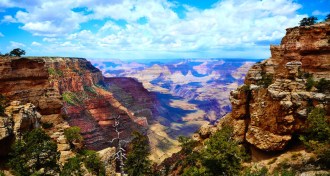 Earth
EarthGrand Canyon’s age revised, again
The Grand Canyon is much younger than previous research had suggested, a new study says.
-
 Health & Medicine
Health & MedicineMice become thin-skinned in space
Long trips in space may thin the skin.
By Meghan Rosen -
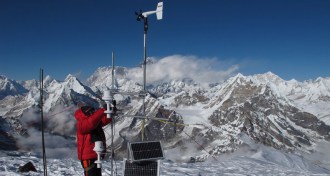 Climate
ClimateEverest could lose most of its ice by the end of the century
Glaciers around Mt. Everest will lost most of their ice by the end of the century, new research predicts.
-
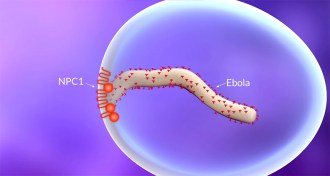 Health & Medicine
Health & MedicineEbola gatekeeper protein identified
Ebola’s ability to infect appears to depend on a key transport protein that guides the virus into cells.
By Meghan Rosen -
 Genetics
GeneticsHumans and Neandertals mated more recently than thought
Neandertals and humans interbred in Europe until shortly before Neandertals went extinct.
-
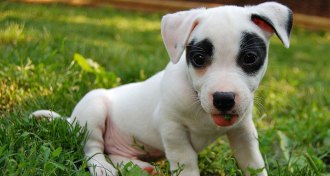
-
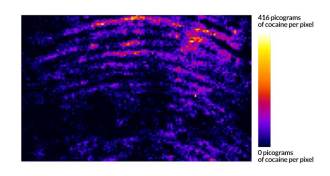 Chemistry
ChemistryFingerprints give away more than identity
Scientists can now detect and measure the amount of illegal drugs, such as cocaine and heroin, on a lone fingerprint.
By Beth Mole -
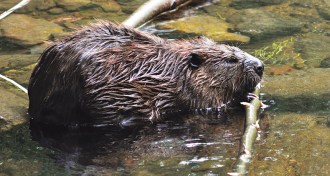 Climate
ClimateFlood planners should not forget beavers
Beaver dams can reduce flooding downstream, new research shows.
-
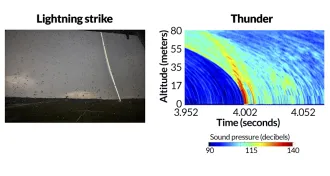 Physics
PhysicsScientists take first picture of thunder
Scientists precisely capture thunder sound waves radiating from artificially triggered lightning.
-
 Astronomy
AstronomyCosmic threesomes make some galaxies run away
Extremely rare, free-floating galaxies called compact ellipticals may have been ejected from their home clusters after a massive intergalactic meet-up.
-
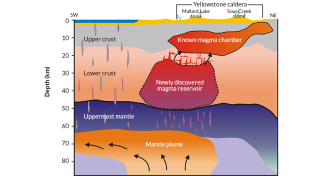 Earth
EarthMassive magma pool found deep below Yellowstone
Earthquake waves reveal massive magma reservoir deep inside the Yellowstone supervolcano.
-
